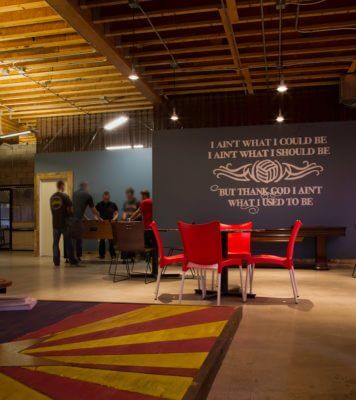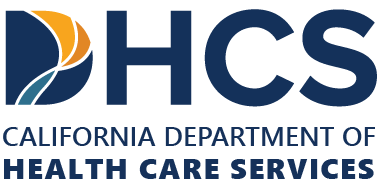
This article about teenage drug abuse and treatment was written by Joshua Azevedo and published in the July, 2010 issue of Together AZ. Together AZ is an addiction and recovery-related newspaper based in Scottsdale, Arizona.
For a teenager staring down the doors of a treatment center, fun isn’t the first word that comes to mind. In fact, he or she is more likely thinking, “This is where fun goes to die” and “How do I get out of this as painlessly as possible so I can get back to partying and get my parents off my back?”
This situation happens every day when young people are first introduced to treatment, counseling or 12-step programs. (Of course, introduced usually means: got caught and dragged somewhere by mom and dad.) One of their greatest fears is that they will never be able to have fun again. To a teen who has been using, this fear is very real. Those who start using drugs or alcohol at a young age often see instant rewards — they feel they fit in and are among the “cool” crowd; they find fun, confidence, laughter and freedom; and they have a good time.
Rejecting the Consequences
Drugs and alcohol appear to meet these teenage needs. What they haven’t yet discovered is that drugs and alcohol are meeting their needs in a false and temporary way. Teens often equate drug and alcohol use and the accompanying scene as either the best or the only way to meet these needs, and this belief leads to an extreme reluctance to let go of the habit — even in the face of consequences.
Teenagers will often willingly endure consequences, such as groundings, school suspension, deteriorating relationships, and the loss of trust or privileges, to hang on to the rush and good times surrounding their use. For those who have not yet experienced extreme consequences, the idea of being sober may sound completely absurd. To them, using is not the problem — rather, it is the answer to life’s problems. In their minds, being told to stop using is like telling someone with arthritis who’s found the cure for their discomfort to stop taking it.
It is common for parents to have a hard time understanding why their teen won’t respond to consequences or punishments surrounding their use. They don’t understand why their kid won’t think about the future or weigh the consequences, or why the child won’t sacrifice today’s “fun” for tomorrow’s security. For parents looking out for their child’s best interests, the young person’s decisions all seem so irrational. But these teens are living for the right-now — for the excitement of what is going on right in front of them.
The Teenager’s Perspective
Let’s look at it from a teenager’s perspective: It’s Friday night, and a group of teens are at a party drinking beer, smoking pot, laughing with friends and having a great time. The cops arrive! Chaos ensues, the dope is hidden, people exit over fences, visine is aplenty, clothes are put on backwards. Some kids get away, while some get taken in for underage drinking.
Parents may see this situation as a near-miss with an inherent lesson about alcohol and its consequences. For most teens, however, it is the opposite. Although the teen may have hell to pay at home with his parents, he is the talk of the campus for the next two weeks at school. Everyone who was there has a story to tell, and this makes them the “cool kids”. They are bonding over this experience, and all the excitement is well worth being grounded or doing some community service. What may seem like a lesson to some is a badge of honor to teens — a war story.
For a teen who is abusing drugs and experiencing all of those payoffs, it is easy to assume that a sober life would mean losing all those good times, that sobriety would consist of only the most “boring” and “adult” things in life — waking up at 5 a.m., reading the paper, school, work, responsibilities, etc. Considering that these things are rarely the top priority for teenagers, coupled with teens’ perceived benefits of the drugs, you might be able to see why they consider sobriety an extremely dull future.
So, how do teenagers get past these preconceptions about sobering up and become open to recovery? What incentive is there to be sober?
Better Than Getting High
Recovery must meet all of the same needs that drugs meet falsely, in both a fun and real way. Being sober must be better than getting high!
Understanding the priorities and needs of young people is the first step in trying to help them. It’s necessary to acknowledge that they are going to need something to replace what they are giving up. It’s also important to realize that their desire to have fun, fit in, be cool, create war stories and live in the moment will not go away just because they are in treatment. It is critical that teens know they can experience all of these things in a life of sobriety.
When they’re using or even newly sober, teens are often told by their parents or other adults to get a hobby or to find better friends and activities. Hearing this advice from an adult is not enough for a teen. In most cases, before change is desired and most recovery concepts can be internalized, young people need to be in contact with others they can relate to and who will provide them with hope that recovery can be better than using. Seeing other teens who have found recovery and still have fun is critical.
Teens are drawn to people they think are “cool.” This part of their nature does not change when they enter treatment or seek help. They will need to meet other young people who are also in recovery, people they think are fun and cool, people they want to hang out with. It is important to have peers who can relate to their plight and reassure them that life is going to get better — not worse — if they get clean and stay sober.
Having a peer group that is working to improve their lives and finding ways to have fun while sober means having people to lean on when things get tough. Which they will at some point. Being a part of a group of people who are aspiring to the same goals creates the feelings of togetherness and excitement and offers the strength needed to recover. Knowing they will not be alone because they are sober is paramount.
Recovery Through Fun
If the fun and social hurdles are being addressed, preconceptions and fears about treatment and recovery begin to dissipate and teens become more likely to accept the challenges of recovery and become open to change. Most recovery concepts are taught in treatment but sink in slowly over time while having a lot of fun. They may begin to relate while listening in 12-step meetings or enter into discussions with sober friends about recovery — talking about the 12 steps or spirituality while hanging out at a local coffee shop, for example.
They start to seek change and personal growth on their own without even realizing it. Sobriety becomes a way of life. They have found a fellowship, a sense of belonging, and a new and positive lifestyle that is fulfilling in a real and lasting way — the opposite of the false fulfillment offered by their former using lifestyle. They will soon notice they are beginning to feel better and that their lives are getting better. And concepts that once seemed absurd, such as honesty, integrity, communication, humility, giving to others and spirituality, are now tools for daily life.
One of the natural progressions and well-known keystones to long-term recovery comes along with the newfound joys and freedom of recovery, and that is the desire to give back to other teens with drug and alcohol problems. Helping others in need provides a critical perspective of one’s own situation and helps teens acknowledge their own progress — and what better way to really learn a lesson for yourself than to teach it to another? Helping others in recovery helps create purpose, and for many, this purpose extends into all areas of their lives. Many people who sober up at a young age go on to not only lead successful lives, but are driven to contribute to society.
I recently attended an event with many people in recovery — adults who had sobered up as teenagers. It was wonderful to see these people as adults, sober, bright-eyed, married, many of them college graduates, close with their families, and some having their own children. As teens, so many of these people were in a place where their lives had become a disaster using drugs and alcohol. Today, these people are joyful and successful. People who at one time had very little hope of a successful adult life were truly happy, exchanging sober war stories, laughing and having a great time with long-term friends they had sobered up with. They had been there for one another throughout their lives.
How wonderful it is that having dealt with their alcohol and drug use early on they were able to focus their young lives on happiness, relationships, fun, pursuit of passions and helping others. It was obvious that their positive energy is infectious. Recovery is a powerful thing to witness. These miracles are happening every day for young people, and so much of it starts with something so simple and often given too little priority in treatment and recovery: FUN!
For information about The Pathway Program substance abuse program for youth, call 877-921-4050.





